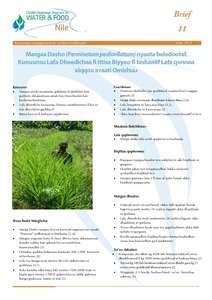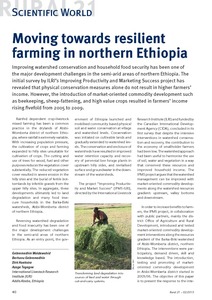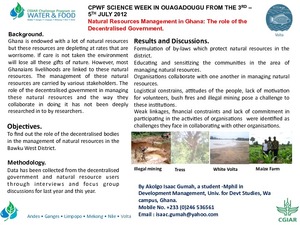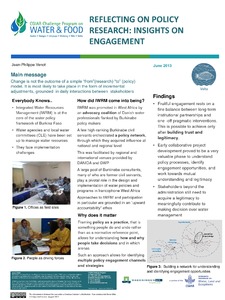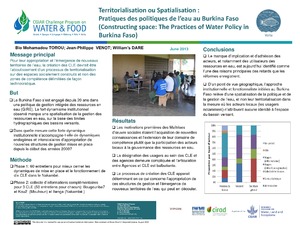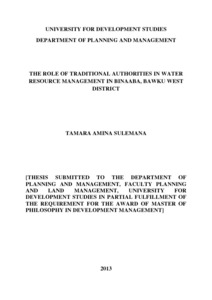Indus Basin of Pakistan : Impacts of Climate Risks on Water and Agriculture
This study, Indus basin of Pakistan: the
impacts of climate risks on water and agriculture was
undertaken at a pivotal time in the region. The weak summer
monsoon in 2009 created drought conditions throughout the
country. This followed an already tenuous situation for many
rural households faced with high fuel and fertilizer costs
and the impacts of rising global food prices. Then
catastrophic monsoon flooding in 2010 affected over 20
Moving towards resilient farming in northern Ethiopia
One cannot step into the same river twice: making the Kaladan Project people-centred
The Kaladan Multi-Modal Transit Transport Project (hereafter “Kaladan Project”) will see
the construction of a combined inland waterway and highway transportation system
connecting Mizoram State in Northeast India with a Bay of Bengal deepsea port at Sitetway,
Arakan State in Western Burma. The Indian government is entirely financing the
Kaladan Project, and these funds are officially classified as development aid to Burma.
Once completed, the infrastructure will belong to the Burma government, but the project
Improving rainwater management: The Nile Basin Development Challenge
The challenge of managing water (and land) in the Ethiopian highlands (Abbay basin)
Water Quality Modeling : A Guide to Effective Practice
This report serves as a guide to the
utility and relevance of water quality prediction modeling.
It draws upon examples from recent World Bank water
resources and wastewater management projects. The goal of
the guide is to provide a broad-based understanding of the
water quality prediction process and to evaluate the
relative merits and cost-effectiveness of using water
quality models under field conditions. The guide build on
Natural Resources Management in Ghana: The role of the Decentralised Government
Ghana is endowed with a lot of natural resources but these resources are depleting at rates that are worrisome. If care is not taken the environment will lose all these gifts of nature. However, most Ghanaians livelihoods are linked to these natural resources. The management of these natural resources are carried by various stakeholders. The role of the decentralised government in managing these natural resources and the way they collaborate in doing it has not been deeply researched in to by researchers.
Reflecting on Policy Research: Insights on Engagement
Main message
Change is not the outcome of a simple “from”(research) “to” (policy) model. It is most likely to take place in the form of incremental adjustments, grounded in daily interactions between stakeholders.
Territorialisation ou Spatialisation : Pratiques des politiques de l’eau au Burkina Faso
Pour leur appropriation et l’e?mergence de nouveaux territoires de l’eau, la cre?ation des CLE devrait e?tre l’aboutissement d’un processus de territorialisation sur des espaces socialement construits et non des zones de compe?tence de?limite?es de fac?on technocratique.
The role of traditional authorities in water resources management in Binaaba, Bawku West District
Current water reforms in most African countries focus on decentralizing water management to the water users, as a way of improving water governance. The target of these reforms is equity, efficiency and sustainability. Unfortunately the reforms tend to concentrate on the use of statutory laws, and give little consideration to the already existing traditional practices. This report presents the findings of a case that examined traditional water management practices in Binaaba located in the Bawku West District of the Upper East Region of Ghana.
‘New agriculture’ for sustainable development? Biofuels and agrarian change in post-war Sierra Leone
In sub-Saharan Africa, commercial bioenergy production has been hailed as a new form of ‘green capitalism’ that will deliver ‘win-win’ outcomes and ‘pro poor’ development. Yet in an era of global economic recession and soaring food prices, biofuel ‘sustainability’ has been at the centre of controversy. This paper focuses on the case of post-war Sierra Leone, a country that has over the last decade been consistently ranked as one of the poorest in the world, facing food insecurity, high unemployment and entrenched poverty.

